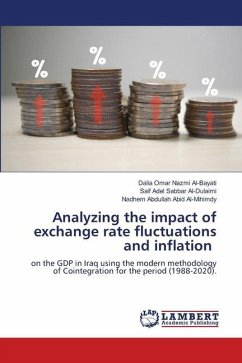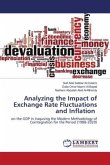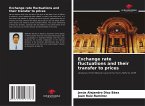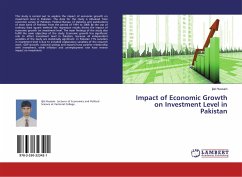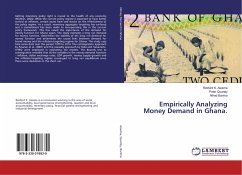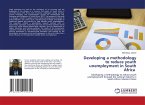The research aims to analyze the impact of exchange rate fluctuations (EXM and EXN) and inflation (INF) on the gross domestic product (GDP) in Iraq for the period 1988-2020. The research is important by analyzing the magnitude of the macroeconomic and especially GDP effects of these variables, as well as the economic effects of exchange rates on economic activity. The results of the standard analysis using the ARDL model showed a long-term equilibrium relationship, according to the Bound Test methodology, from explanatory (independent) variables to the internal (dependent) variable, while the value of the error correction vector factor was negative and moral at a level less than (1%). The relationship between EXM and GDP was inverse, with partial flexibility for EXM (-7.666), meaning that an increase in EXM by (1%) will lead to a decrease in GDP (7.666%), This applies to the reality of the Iraqi economy, as the method used in recent times is to devalue the local currency.

